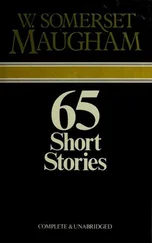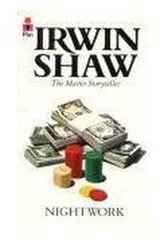Irwin Shaw - Short Stories - Five Decades
Здесь есть возможность читать онлайн «Irwin Shaw - Short Stories - Five Decades» весь текст электронной книги совершенно бесплатно (целиком полную версию без сокращений). В некоторых случаях можно слушать аудио, скачать через торрент в формате fb2 и присутствует краткое содержание. Год выпуска: 2013, Издательство: Open Road Media, Жанр: Современная проза, на английском языке. Описание произведения, (предисловие) а так же отзывы посетителей доступны на портале библиотеки ЛибКат.
- Название:Short Stories: Five Decades
- Автор:
- Издательство:Open Road Media
- Жанр:
- Год:2013
- ISBN:нет данных
- Рейтинг книги:5 / 5. Голосов: 1
-
Избранное:Добавить в избранное
- Отзывы:
-
Ваша оценка:
- 100
- 1
- 2
- 3
- 4
- 5
Short Stories: Five Decades: краткое содержание, описание и аннотация
Предлагаем к чтению аннотацию, описание, краткое содержание или предисловие (зависит от того, что написал сам автор книги «Short Stories: Five Decades»). Если вы не нашли необходимую информацию о книге — напишите в комментариях, мы постараемся отыскать её.
Short Stories: Five Decades — читать онлайн бесплатно полную книгу (весь текст) целиком
Ниже представлен текст книги, разбитый по страницам. Система сохранения места последней прочитанной страницы, позволяет с удобством читать онлайн бесплатно книгу «Short Stories: Five Decades», без необходимости каждый раз заново искать на чём Вы остановились. Поставьте закладку, и сможете в любой момент перейти на страницу, на которой закончили чтение.
Интервал:
Закладка:
“You’ll spend every cent your old man owns,” Darling protested once when she showed up at his rooms with seven different packages in her arms and tossed them onto the couch.
“Kiss me,” Louise said, “and shut up.”
“Do you want to break your poor old man?”
“I don’t mind. I want to buy you presents.”
“Why?”
“It makes me feel good. Kiss me. I don’t know why. Did you know that you’re an important figure?”
“Yes,” Darling said gravely.
“When I was waiting for you at the library yesterday two girls saw you coming and one of them said to the other, ‘That’s Christian Darling. He’s an important figure.’”
“You’re a liar.”
“I’m in love with an important figure.”
“Still, why the hell did you have to give me a forty-pound dictionary?”
“I wanted to make sure,” Louise said, “that you had a token of my esteem. I want to smother you in tokens of my esteem.”
Fifteen years ago.
They’d married when they got out of college. There’d been other women for him, but all casual and secret, more for curiosity’s sake, and vanity, women who’d thrown themselves at him and flattered him, a pretty mother at a summer camp for boys, an old girl from his home town who’d suddenly blossomed into a coquette, a friend of Louise’s who had dogged him grimly for six months and had taken advantage of the two weeks that Louise went home when her mother died. Perhaps Louise had known, but she’d kept quiet, loving him completely, filling his rooms with presents, religiously watching him battling with the big Swedes and Polacks on the line of scrimmage on Saturday afternoons, making plans for marrying him and living with him in New York and going with him there to the night clubs, the theaters, the good restaurants, being proud of him in advance, tall, white-teethed, smiling, large, yet moving lightly, with an athlete’s grace, dressed in evening clothes, approvingly eyed by magnificently dressed and famous women in theater lobbies, with Louise adoringly at his side.
Her father, who manufactured inks, set up a New York office for Darling to manage and presented him with three hundred accounts, and they lived on Beekman Place with a view of the river with fifteen thousand dollars a year between them, because everybody was buying everything in those days, including ink. They saw all the shows and went to all the speakeasies and spent their fifteen thousand dollars a year and in the afternoons Louise went to the art galleries and the matinees of the more serious plays that Darling didn’t like to sit through and Darling slept with a girl who danced in the chorus of Rosalie and with the wife of a man who owned three copper mines. Darling played squash three times a week and remained as solid as a stone barn and Louise never took her eyes off him when they were in the same room together, watching him with a secret, miser’s smile, with a trick of coming over to him in the middle of a crowded room and saying gravely, in a low voice, “You’re the handsomest man I’ve ever seen in my whole life. Want a drink?”
Nineteen twenty-nine came to Darling and to his wife and father-in-law, the maker of inks, just as it came to everyone else. The father-in-law waited until 1933 and then blew his brains out and when Darling went to Chicago to see what the books of the firm looked like he found out all that was left were debts and three or four gallons of unbought ink.
“Please, Christian,” Louise said, sitting in their neat Beekman Place apartment, with a view of the river and prints of paintings by Dufy and Braque and Picasso on the wall, “please, why do you want to start drinking at two o’clock in the afternoon?”
“I have nothing else to do,” Darling said, putting down his glass, emptied of its fourth drink. “Please pass the whisky.”
Louise filled his glass. “Come take a walk with me,” she said. “We’ll walk along the river.”
“I don’t want to walk along the river,” Darling said, squinting intensely at the prints of paintings by Dufy, Braque and Picasso.
“We’ll walk along Fifth Avenue.”
“I don’t want to walk along Fifth Avenue.”
“Maybe,” Louise said gently, “you’d like to come with me to some art galleries. There’s an exhibition by a man named Klee.…”
“I don’t want to go to any art galleries. I want to sit here and drink Scotch whisky,” Darling said. “Who the hell hung those goddam pictures up on the wall?”
“I did,” Louise said.
“I hate them.”
“I’ll take them down,” Louise said.
“Leave them there. It gives me something to do in the afternoon. I can hate them.” Darling took a long swallow. “Is that the way people paint these days?”
“Yes, Christian. Please don’t drink any more.”
“Do you like painting like that?”
“Yes, dear.”
“Really?”
“Really.”
Darling looked carefully at the prints once more. “Little Louise Tucker. The middle-western beauty. I like pictures with horses in them. Why should you like pictures like that?”
“I just happen to have gone to a lot of galleries in the last few years …”
“Is that what you do in the afternoon?”
“That’s what I do in the afternoon,” Louise said.
“I drink in the afternoon.”
Louise kissed him lightly on the top of his head as he sat there squinting at the pictures on the wall, the glass of whisky held firmly in his hand. She put on her coat and went out without saying another word. When she came back in the early evening, she had a job on a woman’s fashion magazine.
They moved downtown and Louise went out to work every morning and Darling sat home and drank and Louise paid the bills as they came up. She made believe she was going to quit work as soon as Darling found a job, even though she was taking over more responsibility day by day at the magazine, interviewing authors, picking painters for the illustrations and covers, getting actresses to pose for pictures, going out for drinks with the right people, making a thousand new friends whom she loyally introduced to Darling.
“I don’t like your hat,” Darling said, once, when she came in in the evening and kissed him, her breath rich with Martinis.
“What’s the matter with my hat, Baby?” she asked, running her fingers through his hair. “Everybody says it’s very smart.”
“It’s too damned smart,” he said. “It’s not for you. It’s for a rich, sophisticated woman of thirty-five with admirers.”
Louise laughed. “I’m practicing to be a rich, sophisticated woman of thirty-five with admirers,” she said. He stared soberly at her. “Now, don’t look so grim, Baby. It’s still the same simple little wife under the hat.” She took the hat off, threw it into a corner, sat on his lap. “See? Homebody Number One.”
“Your breath could run a train,” Darling said, not wanting to be mean, but talking out of boredom, and sudden shock at seeing his wife curiously a stranger in a new hat, with a new expression in her eyes under the little brim, secret, confident, knowing.
Louise tucked her head under his chin so he couldn’t smell her breath. “I had to take an author out for cocktails,” she said. “He’s a boy from the Ozark Mountains and he drinks like a fish. He’s a Communist.”
“What the hell is a Communist from the Ozarks doing writing for a woman’s fashion magazine?”
Louise chuckled. “The magazine business is getting all mixed up these days. The publishers want to have a foot in every camp. And anyway, you can’t find an author under seventy these days who isn’t a Communist.”
“I don’t think I like you to associate with all those people, Louise,” Darling said. “Drinking with them.”
Читать дальшеИнтервал:
Закладка:
Похожие книги на «Short Stories: Five Decades»
Представляем Вашему вниманию похожие книги на «Short Stories: Five Decades» списком для выбора. Мы отобрали схожую по названию и смыслу литературу в надежде предоставить читателям больше вариантов отыскать новые, интересные, ещё непрочитанные произведения.
Обсуждение, отзывы о книге «Short Stories: Five Decades» и просто собственные мнения читателей. Оставьте ваши комментарии, напишите, что Вы думаете о произведении, его смысле или главных героях. Укажите что конкретно понравилось, а что нет, и почему Вы так считаете.











